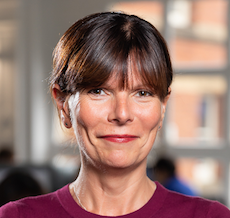 From technology, the environment to demographic trends, winds of change are transforming the concept of workforce agendas, according to Zen Internet HR Director Ayshea Robertson.
From technology, the environment to demographic trends, winds of change are transforming the concept of workforce agendas, according to Zen Internet HR Director Ayshea Robertson.
As custodians of the workforce agenda, HR leaders are becoming ever more important authors of their organisation's narrative. Central to Robertson's narrative are three themes - the first is advances in technology and innovation. "Automation and advancing technologies like AI and robotics are going to change the nature and the number of jobs available, and this will mean increased agility, speed and efficiency for businesses," she explained.
"As the advances in technology begin to remove the need for certain roles, there will be an increase in demand for differing skill sets. So we need to look at up-skilling and re-skilling the workforce to accommodate this. It is likely that there will be more focus on innovation and people who are creative. As HR Director at Zen, I need to think about how technology and people can work together to achieve the best of both, and enable the business to grow."
People are far more environmentally savvy now, so they will want to work with, and use, companies that care about the environment
Climate and environmental change could potentially devastate the planet, and moves to address these critical issues can now be waged from offices around the world. This matter is a top priority for Robertson - and her second theme in Zen's workforce agenda. "There are many reasons why environmental change is impacting the workforce and beyond," she stated. "As we are experiencing extreme weather conditions more frequently across the globe, we look at how equipped we are in communities and businesses to cope with this. And how can we be more prepared in the future.
"There are also increasing demands for energy. We have more tech, more machinery, but we have the competing pressure for organisations to consume less energy and to become more carbon neutral and carbon negative even. This will influence decisions made in business and how we structure our ways of working. I expect new roles will be created to focus and specialise on environmental change in business and industries. It will also change consumer demands. People are far more environmentally savvy now, so they will want to work with, and use, companies that care about the environment. Corporate responsibility is no longer a nice to have, it is absolutely fundamental."
Demographic change, Robertson's third prime mover, is also reshaping the workforce. The ageing population will have an impact on the flow of talent in organisations; and career opportunities may be not as readily available as people in senior roles work longer. "This will also lead to the necessity to re-skill people," she added. "For example, at Zen we understand the speed of technologic change, so we constantly need to keep the skill set of our people up-to-date and relevant. This will be the same in other areas of an organisation too, not just technology."
The three macro forces identified by Robertson as reshaping workforce dynamics are having a global impact and affect all types of organisations. "They are also interlinked which is why we have to bear each of them in mind in today’s business environment, and we need to be doing something about them now," she added. "Zen is constantly thinking about advances in technology. We have an environmental steering group, and we have started to think about the ageing population impact.
"These topics will continue to evolve and we must keep an eye on them for a long time to come. It is important for the channel to think about these areas immediately and start preparing now."
